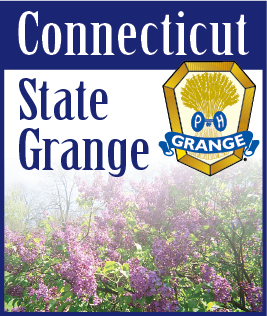| JULY 5, 2016 -- The Connecticut General Assembly finished its 2016 session to only go right back into special session to complete adjustments to the second year of the state budget. The budget did take $1 million from the Community Investment Act funds this year. Considering the fiscal status of the state, this could have been worse. The Department of Agriculture’s budget was cut about $400,000 but the Connecticut Agricultural Experiment Station experienced a $1 million cut. The Department of Energy and Environmental Protection (DEEP) was also cut over $7 million.
On the plus side, one bill which would expand the FarmLink and Ag Viability grant program, that we supported, did pass and was signed by the Governor. This will give the Department of Agriculture more flexibility to use and fund partners to do the ground work needed for farmland owners. This program connects existing farmland owners with potential tenants, lessees, and the next generation of farmers. The bill also allows the Ag Viability grant to fund programs which promote farmland access and farm transfer.
Another bill opens the opportunity to present a constitutional amendment restricting the General Assembly’s ability to siphon off dedicated funds such as the Community Investment Act for general use. It was passed by both the House and Senate but it did not receive the ¾ majority of the vote which would allow it to be placed on this falls ballot. It will be readdressed next session where it will only need a simple majority vote to move on to the ballot.
There were a couple of other bills that that I was watching which were interesting. One created a new pollinator law in reaction to concern about the loss of pollinators such as bees and butterflies. This law will restrict certain pesticides that impact a pollinator’s nervous system. The Department of Energy and Environmental Protection (DEEP) working with the Connecticut Agricultural Experiment Statement (CAES) will define a restricted use list of these pesticides. The bill also requires CAES to develop a citizen’s guide which will provide information on flowers, vegetable, herbs and other plants which will attract honeybees and other pollinators. They also opened the way for the Department of Transportation to plant flowers and other flowering vegetation along highways for increase pollinator habitat.
Another bill passed concerns the stiffening of animal cruelty laws for repeat offenders. The punishment for a first offense is a Class D felony punishable by up to 10 years prison and/or a $5,000 fine. Repeat offenders increase from a Class D felony to a Class C felony which is punishable by imprisonment of one to 10 years and/or a fine of up to $10,000. Other animal cruelty offenses are punishable by imprisonment up to 1 year and/or fines up to $1,000. |
